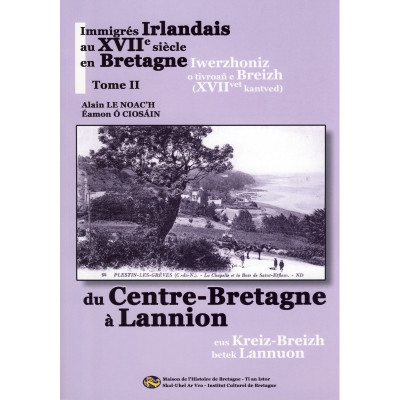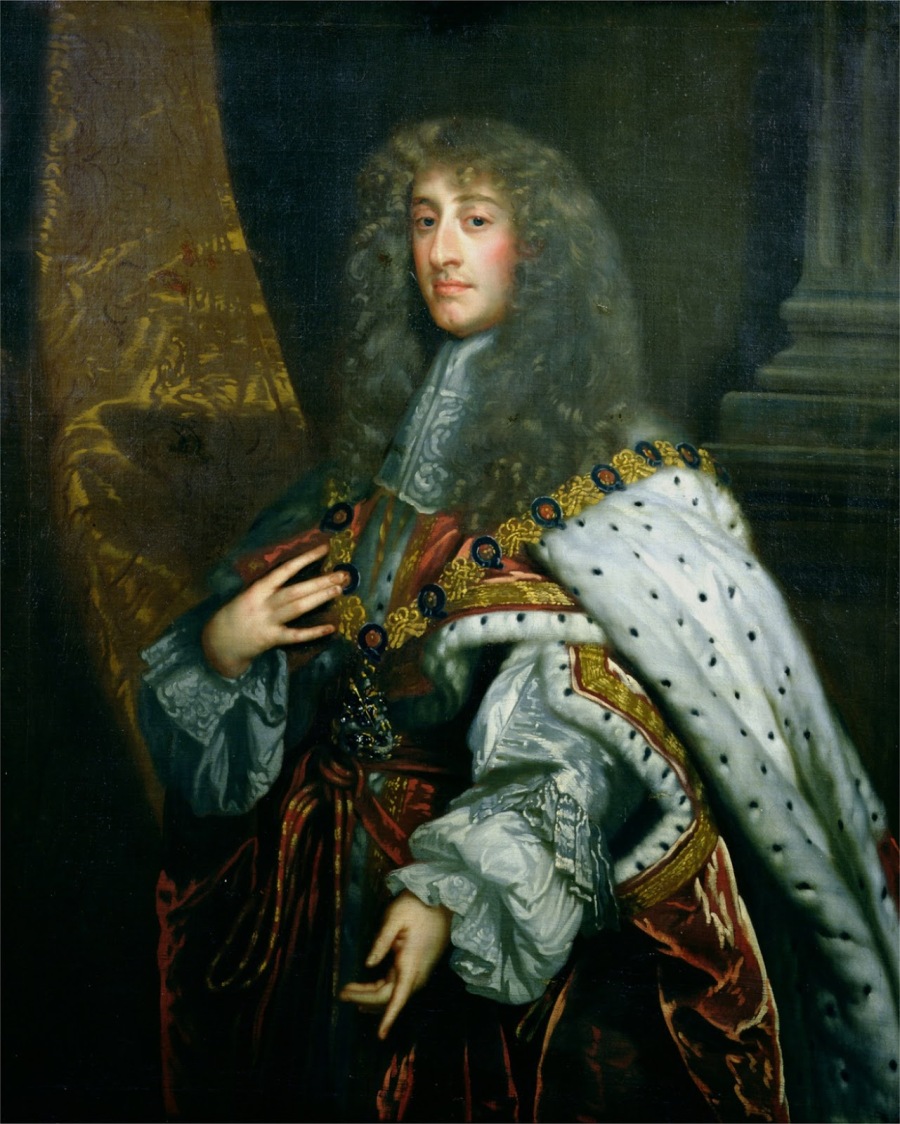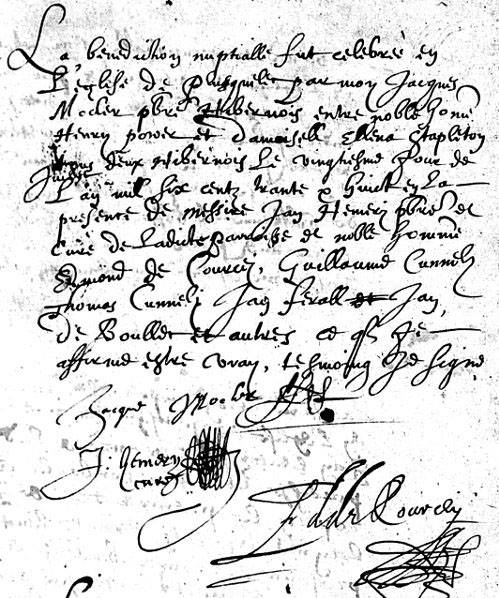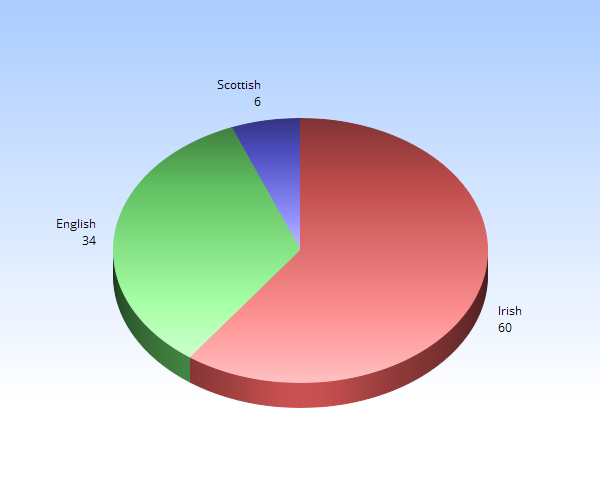Britannic origins ?
Knowing the proximity of the two nations and the strong presence of Celtic culture in Brittany this seems evident and irrefutable…yet, this common history us still relatively unknown.
British Emigration in Armorica (from the 3rd to the 6th century)
Bernard Madrignac, professor of medieval history differentiates two major waves of emigration in Great-Britain during this period : a first one during the 5th century and another one beginning in the 5th century. The first one might have been the result of military action (defense against pirates) as for the second seems to be of religious order (members of the clergy were encouraged to migrate by the Church). However, the history of those two specific period is still relatively obscure.
On the other hand, we know that between 4th and the 5th century ,massacre were perpetrated in Great-Britain by the Anglo-Saxons. Therefore, the Britons fled across the Chanel, that they call Mor Breizh ( Britons’s sea), and land in Armorica in today’s Brittany. They named this new home « little Britain ». The exiled then largely contributed to the creation of the Briton’s language (Breton), which became a close relatve of Welsh and of the language of Cornwall (Cornouaillais). Those three are part of the brythonic languages, a sub family, of the Celtic languages. For more information concerning the relation between Breton and Welsh I refer you to my article about Wales !
It’s certain that British largely contributed to the history of Britanny ! Their arrival even shook the political situation and it’s at this time that the curent Breton’s Contry (Léon,Cronwall,…) were created, despite the celtic populations that were there (Vénètes, Coriosolites,…). Furthermore, some recent hypothesis suggests an even more ancient bond between the two nations ! To be continued…
Irish emigration during the 17th century
Alain Le Noac’h, an ancient executive of the French Post Office and a passionate amateur historian and Eamon O Ciosain a professor at Maynooth University in Dublin who is much interested in Irish history, joined in order to write a book in three volumes about Irish immigration in the different part of Brittany during the 17th century. A part of history that I have never heard before, and I’m far from the only one…

And yet, it’s almost 35000 Irish immigrants who settled on the main land during the 17th century mainly in order to escape the colonization of Cromwell and his massacre in 1649.
Generally of catholic faith, the Irish were persecuted by the British who were protestants. That’s the reason why the Britons, who were alsocatholicc, warmly welcomed the Irish and allowed them to settle there. Moreover the church registers show us that there were weddings between members of both population or that there were Britons godparents of Irish children. The two populations seemed to live in harmon.
Here you can see a marriage certificate of two hibernois, by a priest who is also a hibernois, at Cullar, on the Armorican Coast.
Hibrenois was the name gave to the Irish who left their island between the 16th and the 17th century. They were also called the « Irois », or even the « Wild geese » if they were Jacobite, and they are the one I will talk about now.
The exile of Jacobites
James II, catholic king of Ireland and England (and later Scotland under the name James VII), is defeated by his protestant son-in-law William of Orange during the Glorious Revolution of 1688.
The supporters of the old king, known as Jacobite, mostly found in Ireland, in England and in the Scottish Highlands, rallied behind him in Ireland in order to reconquer his kingdom, however they were defeated in 1690 at the Battle of the Boyne.

In 1691 James II and William III of Orange signed the treaty of Limarck. This treaty allowed the catholic to leave in exile and gave them some religious freedom. A great number of Irish left their country to live in France, where James II lives in exile under the protection of Louis XIV where the Jacobite refugees were favorably welcomed. They particularly migrated in the Atlantic Regions and in Brittany. Intotal, it’s almost 40.000 Jacobites immigrants that found their way to France, scattered as we can see there (in %) :
We can now say that the exile of Irish of the British was not something rare in Brittany’s history. So if you are a Briton, it’s normal to find some Irish ancestors or even some English or Scottish ones…
Translation / Traduction : Shane Joseph
Original : D’où viennent les Bretons ? Partie 1 et partie 2
Sources :
http://bro-plistin.pagesperso-orange.fr/Migration-bretons.htm#peuplement
http://www.coop-breizh.fr/6952-immigres-irlandais-en-bretagne-xviie-t3-2147483647.html
www.collectif-topik.fr/pdf/Histoire-memoire-immigration-Bretagne-tome1.pdf
http://www.letelegramme.fr/local/cotes-d-armor/rostrenen-loudeac/ville/edition-les-immigres-irlandais-en-cotes-d-armor-26-07-2009-484559.php
http://www.genealogie22.org/Callac-de-Bretagne/hibernois.html
https://fr.wikipedia.org/wiki/Hibernois
https://en.wikipedia.org/wiki/Jacobitism
http://www.lcdpu.fr/livre/?GCOI=27000100049940
https://en.wikipedia.org/wiki/Treaty_of_Limerick
https://fr.wikipedia.org/wiki/R%C3%A9fugi%C3%A9s_jacobites_en_France




[…] In english : https://graphistoryblog.wordpress.com/2018/06/24/britons-origins/ […]
J’aimeJ’aime
[…] Available in English : https://graphistoryblog.wordpress.com/2018/06/24/britons-origins/ […]
J’aimeJ’aime